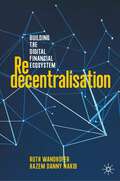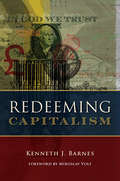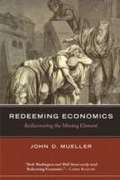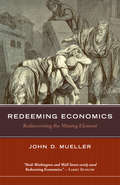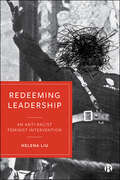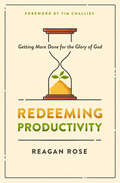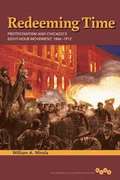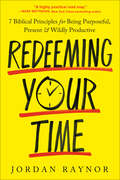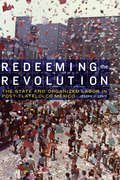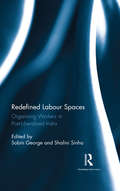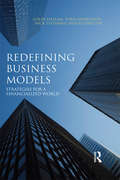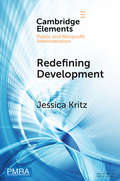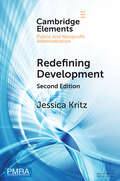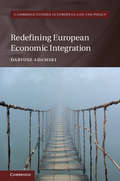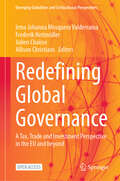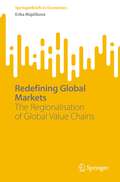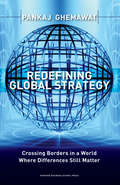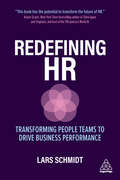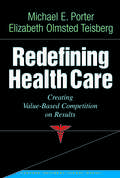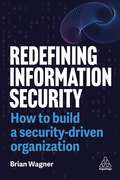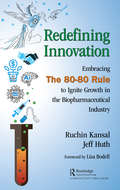- Table View
- List View
Reddito Passivo: una Guida al Metodo per Fare Soldi Online in 30 Giorni
by John King Giorgio RichettaReddito passivo: una guida al metodo per fare soldi online in 30 giorni Vuoi creare facilmente ricchezza automatizzata e generare ricavi in soli 30 giorni? Reddito passivo: una guida al metodo per fare soldi online in 30 giorni Lo sapevate che un milionario ha in media oltre 7 flussi di reddito? Vuoi creare facilmente ricchezza automatizzata e generare ricavi in soli 30 giorni? Se hai risposto sì, allora questa pubblicazione fa per te! Questa guida possiede tonnellate di strategie per creare più flussi di reddito automatizzato. Non c'è bisogno di essere legati ad una posizione specifica e si può fare tutto comodamente dal proprio soggiorno! Qui ci sono gli argomenti che sono inclusi nel libro: Panoramica del reddito passivo Investimenti, tipologie e strategie Reddito basato sul servizio Vendere Libri Marketing affiliato Marketing di rete Vendita digitale di file E MOLTO ALTRO! Se volete imparare a creare più flussi di reddito passivo, questo libro è per voi! Scorrere fino all'inizio della pagina e fare clic su Aggiungi al carrello per l'acquisto istantaneamente Clausola di esclusione della responsabilità: Questo autore e/o proprietari di diritti non garantisce circa l'accuratezza, la completezza o l'adeguatezza del contenuto di questo libro, e declina espressamente ogni responsabilità per errori e omissioni nel contenuto all'interno. Questo prodotto è solo per uso di riferimento.
Redecentralisation: Building the Digital Financial Ecosystem
by Ruth Wandhöfer Hazem Danny NakibThe rise of smartphones, social media, cryptocurrencies and digital assets has changed our lives profoundly over the last decade. In tandem, the relationship between governments, citizens and businesses has evolved, creating new sets of challenges and imbalances, but also opportunities.This book focuses on the evolving digitisation of the financial industry and the impact this has on users. Particular attention is given to the emergence of new technologies such as blockchain, smart contracts and AI. The increasingly interconnected, data-driven digital economy, which includes many aspects of an individual’s and organisation’s life, has become a challenge for regulators, too. Matters are complex but also increasingly centralised, with a growing trend of distrust. Should we push for more decentralisation?To shed light on this question we begin by providing an overview of key concepts and develop a high-level qualitative framework and approach to what we call ‘Redecentralisation'.Delving into those technology areas that form part of the tectonic plate shift of our financial system we explore the pillars of money and payments that are at a turning point with the replacement of key infrastructural components necessary for the future of what we call the Digital Financial Ecosystem. Digital identity and data privacy also form part of this broader puzzle.We then look to the future to consider some of the latest trends and ‘what if’ scenarios. Where do we see Redecentralisation at play in the Digital Financial Ecosystem? What is the role of technology in this, e.g. Web3, the Metaverse and Decentralised Finance? Can Redecentralisation support an alignment of values across people, governments and businesses? What is the role of technology in this? And finally, do we need a new digital social contract to underpin and protect our digital lives?
Redeem All: How Digital Life Is Changing Evangelical Culture
by Corrina LaughlinRedeem All examines the surprising intersection of American evangelicalism and tech innovation. Corrina Laughlin looks at the evangelical Christians who are invested in imagining, using, hacking, adapting, and creating new media technologies for religious purposes. She finds that entrepreneurs, pastors, missionaries, and social media celebrities interpret the promises born in Silicon Valley through the framework of evangelical culture and believe that digital media can help them (to paraphrase Steve Jobs) put their own dent in the universe. Laughlin introduces readers to "startup churches" hoping to reach a global population, entrepreneurs coding for a deeper purpose, digital missionaries networking with mobile phones, and Christian influencers and podcasters seeking new forms of community engagement. Redeem All reveals how evangelicalism has changed as it eagerly adopts the norms of the digital age.
Redeeming Capitalism
by Kenneth J. BarnesOn reclaiming the moral roots of capitalism for a virtuous futureFor good or ill, the capitalism we have is the capitalism we have chosen, says Kenneth Barnes. Capitalism works, and the challenge before us is not to change its structure but to address the moral vacuum at the core of its current practice.In Redeeming Capitalism Barnes explores the history and workings of this sometimes-brutal economic system. He investigates the effects of postmodernism and unpacks biblical-theological teachings on work and wealth. Proposing virtuous choices as a way out of such pitfalls as the recent global financial crisis, Barnes envisions a more just and flourishing capitalism for the good of all.
Redeeming Capitalism
by Miroslav Volf Kenneth J. BarnesOn reclaiming the moral roots of capitalism for a virtuous futureFor good or ill, the capitalism we have is the capitalism we have chosen, says Kenneth Barnes. Capitalism works, and the challenge before us is not to change its structure but to address the moral vacuum at the core of its current practice.In Redeeming Capitalism Barnes explores the history and workings of this sometimes-brutal economic system. He investigates the effects of postmodernism and unpacks biblical-theological teachings on work and wealth. Proposing virtuous choices as a way out of such pitfalls as the recent global financial crisis, Barnes envisions a more just and flourishing capitalism for the good of all.
Redeeming Economics: Rediscovering The Missing Element
by John D. MuellerThe thesis of this book is straightforward. The most important element in economics is missing, and its rediscovery is priming a revolution the likes of which has occurred only three times in more than 750 years. The Scholastic economics of Thomas Aquinas was comprised of four key elements: the theory of production, or how much gets produced; the theory of justice in exchange, or how one is compensated through the sale of goods for contributing to production; the theory of final distribution, or who gets to consume goods; and the theory of consumption (utility), or which goods people prefer to consume, according to Mueller (director of the Economics and Ethics Program at the Ethics and Public Policy Center, self-described as "Washington, D. C. 's premier institute dedicated to applying the Judeo-Christian moral tradition to critical issues of public policy," and president of a firm specializing in economic forecasting and policy analysis). His central argument in this text is that the oversimplification of Scholastic economics that began with Adam Smith's limiting economics to merely production and exchange and then partially corrected by the neoclassicists reincorporation of the theory of utility needs to be brought full circle by reintroducing the theory of final distribution. His goal then in this wide-ranging work is to describe for the general reader what bringing the theory of final distribution back into consideration would mean for economic theory and particularly for its practical applications. Annotation ©2011 Book News, Inc. , Portland, OR (booknews. com)
Redeeming Economics: Rediscovering the Missing Element
by John D. Mueller"Groundbreaking." --Washington ExaminerEconomics is primed for--and in desperate need of--a revolution, respected economic forecaster John D. Mueller shows in this eye-opening book. To make the leap forward will require looking backward, for as Redeeming Economics reveals, the most important element of economic theory has been ignored for more than two centuries.Since the great Adam Smith tore down this pillar of economic thought, economic theory has been unable to account for a fundamental aspect of human experience: the relationships that define us, the loves (and hates) that motivate and distinguish us as persons. In trying to reduce human behavior to exchanges, modern economists have forgotten how these essential motivations are expressed: as gifts (or their opposite, crimes). Mueller makes economics whole again, masterfully reapplying the economic thought of Aristotle, Augustine, and Aquinas.
Redeeming Leadership: An Anti-Racist Feminist Intervention
by Helena LiuNow available in paperback with a new preface and foreword by Stella Nkomo. How might imperialist, masculinist and white supremacist grips on leadership be loosened? In this thought-provoking and accessible new study, Helena Liu suggests that anti-racist feminism can challenge conventional models and practices of power. Combining a critical review of leadership theory with enlightening examples from around the world, the book shows how the intellectual and activist elements of feminist movements provide antidotes to contemporary leadership research and practice. For those interested in management, organisation, feminism, race and many more studies, it sets the agenda for a radical reimagining of control and leadership in all its forms.
Redeeming Productivity: Getting More Done for the Glory of God
by Reagan RoseFeeling overwhelmed and unproductive? The answer isn&’t to do more. What image forms in your mind when you think of productivity? An assembly line? Spreadsheets? Business suits or workplace uniforms? In the ancient world, productivity didn't conjure images like these. Instead, it referred to crop yield and fruit bearing. This agrarian imagery helps us understand productivity through a biblical lens. Jesus taught, By this my Father is glorified, that you bear much fruit (John 15:8). Who doesn&’t want to have a truly productive life—to bear much fruit? But how does this happen in the places we hold dear—the home, workplace, and in our communities? We often feel overworked and overrun, defeated and discouraged. The world says be productive so that you can get all you can out of this life. The Bible says be productive so you can gain more of the next life. In Redeeming Productivity, author Reagan Rose explores how God&’s glory is the purpose for which He planted us. And he shows how productivity must be firmly rooted in the gospel. Only through our connection to Christ—the True Vine—are we empowered to produce good fruit. This book shows how we can maintain the vitality of that connection through simple, life-giving disciplines. Readers will discover manageable applications like giving God the first fruits of our days. Additionally, Reagan discusses how our perspective on suffering is transformed as we see trials as God&’s pruning for greater productivity.
Redeeming Productivity: Getting More Done for the Glory of God
by Reagan RoseFeeling overwhelmed and unproductive? The answer isn&’t to do more. What image forms in your mind when you think of productivity? An assembly line? Spreadsheets? Business suits or workplace uniforms? In the ancient world, productivity didn't conjure images like these. Instead, it referred to crop yield and fruit bearing. This agrarian imagery helps us understand productivity through a biblical lens. Jesus taught, By this my Father is glorified, that you bear much fruit (John 15:8). Who doesn&’t want to have a truly productive life—to bear much fruit? But how does this happen in the places we hold dear—the home, workplace, and in our communities? We often feel overworked and overrun, defeated and discouraged. The world says be productive so that you can get all you can out of this life. The Bible says be productive so you can gain more of the next life. In Redeeming Productivity, author Reagan Rose explores how God&’s glory is the purpose for which He planted us. And he shows how productivity must be firmly rooted in the gospel. Only through our connection to Christ—the True Vine—are we empowered to produce good fruit. This book shows how we can maintain the vitality of that connection through simple, life-giving disciplines. Readers will discover manageable applications like giving God the first fruits of our days. Additionally, Reagan discusses how our perspective on suffering is transformed as we see trials as God&’s pruning for greater productivity.
Redeeming Time: Protestantism and Chicago's Eight-Hour Movement, 1866-1912
by William A. MirolaDuring the struggle for the eight-hour workday and a shorter workweek, Chicago emerged as an important battleground for workers in "the entire civilized world" to redeem time from the workplace in order to devote it to education, civic duty, health, family, and leisure. William A. Mirola explores how the city's eight-hour movement intersected with a Protestant religious culture that supported long hours to keep workers from idleness, intemperance, and secular leisure activities. Analyzing how both workers and clergy rewove working-class religious cultures and ideologies into strategic and rhetorical frames, Mirola shows how every faith-based appeal contested whose religious meanings would define labor conditions and conflicts. As he notes, the ongoing worker-employer tension transformed both how clergy spoke about the eight-hour movement and what they were willing to do, until intensified worker protest and employer intransigence spurred Protestant clergy to support the eight-hour movement even as political and economic arguments eclipsed religious framing. A revealing study of an era and a movement, Redeeming Time illustrates the potential--and the limitations--of religious culture and religious leaders as forces in industrial reform.
Redeeming Your Time: 7 Biblical Principles for Being Purposeful, Present, and Wildly Productive
by Jordan RaynorManage your time the way Jesus managed his with a biblical antidote to swamped to-do lists and hurried schedules.&“A highly practical road map.&”—Mark Batterson, New York Times bestselling author and lead pastor of National Community ChurchDespite the overwhelming amount of resources for time management and work-life balance, the ability to cultivate the efficiency and equilibrium needed to manage all our worthy pursuits can often feel frustratingly out of reach. The reason for our struggle is that productivity and time-management systems focus on individual habits rather than more meaningful and lasting lifestyle changes. But as it turns out, there is a better way to reach our full potential.We don&’t need just another approach to changing our habits. What we need is an operating system that takes into account the full scope of our lives. In these pages, bestselling author Jordan Raynor presents this system, using seven powerful time- management principles drawn from the example of how Jesus lived: 1. Start with the Word: Find meaningful connection with the author of time daily. 2. Let Your Yes Be Yes: Accept only the commitments you can fulfill. 3. Dissent from the Kingdom of Noise: Create room for silence, stillness, and reflection. 4. Prioritize Your Yeses: Confidently maintain your commitments. 5. Accept Your &“Unipresence&”: Focus on one important thing at a time. 6. Embrace Productive Rest: Live the God-designed rhythms of rest which are productive for our goals and souls. 7. Eliminate All Hurry: Embrace productive busyness while ruthlessly eliminating hurry from our lives.With these principles, you&’ll see how Jesus managed his time on earth and how he responded to human constraints much like the ones you face today. More than that, you&’ll discover corresponding practices that will help you embrace the best, most Christlike version of yourself possible: purposeful, present, and wildly productive.
Redeeming the Revolution: The State and Organized Labor in Post-Tlatelolco Mexico (The Mexican Experience)
by Joseph U. LentiA tale of sin and redemption, Joseph U. Lenti’s Redeeming the Revolution demonstrates how the killing of hundreds of student protestors in Mexico City’s Tlatelolco district on October 2–3, 1968, sparked a crisis of legitimacy that moved Mexican political leaders to reestablish their revolutionary credentials with the working class, a sector only tangentially connected to the bloodbath. State-allied labor groups hence became darlings of public policy in the post-Tlatelolco period, and with the implementation of the New Federal Labor Law of 1970, the historical symbiotic relationship of the government and organized labor was restored. Renewing old bonds with trusted allies such as the Confederation of Mexican Workers bore fruit for the regime, yet the road to redemption was fraught with peril during this era of Cold War and class contestation. While Luis Echeverría, Fidel Velázquez, and other officials appeased union brass with discourses of revolutionary populism and policies that challenged business leaders, conflicts emerged, and repression ensued when rank-and-file workers criticized the chasm between rhetoric and reality and tested their leaders’ limits of toleration.
Redefined Labour Spaces: Organising Workers in Post-Liberalised India
by Sobin George Shalini SinhaThis book discusses the transformation of labour movements and trade unionism in post-liberalised India. It looks at emerging collectivism, both in formal and informal sectors, and relates it to changing political and industrial relations. Bringing together studies of resistance, struggles and new forms of negotiations from different industries –agriculture, fisheries, brick kiln, plantations, IT, domestic workers, shipbreakers, sex workers, and miners –this book exposes the myths, realities and challenges that the present generation of workers in India face and struggle with. With contributions from leading thinkers in the field, the work deepens the understanding of the current Indian labour spaces, possibilities for contestations and articulations from below. The volume will be useful to students and researchers of labour studies, economics, sociology, development studies and public policy. It will be an invaluable resource to those engaged with industrial relations, trade unions, human rights, social exclusion as well as labour organisations and research institutions.
Redefining Business Models: Strategies for a Financialized World
by Nicholas Tsitsianis Colin Haslam Tord Andersson Ya Ping YinThe world has moved on in the advanced economies where credit based financial systems coupled with malleable accounting systems disconnect capitalization and wealth accumulation from GDP trajectories and financial surplus. This, the book argues, is the product of economic, financial and cultural imperatives that privilege and encourage financial leverage for wealth accumulation. This text re-works business models for a financialized world and presents a distinctive insight into the way in which national, corporate and focal firm business models have adapted and evolved. It also shows how, in the current financial crisis, financial disturbances can be amplified, transmitted and made porous, by accounting systems, threatening economic stability. By making visible the tensions and contradictions embedded in this process of economic development, the authors have constructed a loose business model conceptual framework that is also grounded in accounting. This is a valuable resource for practitioners, academics and policy makers with an interest in management, accounting and economic policy.
Redefining Development: Resolving Complex Challenges in Developing Countries (Elements in Public and Nonprofit Administration)
by Jessica KritzIn 2015, the Old Fadama slum of Accra, Ghana was a government 'no-go zone' due to the generally lawless environment. Participatory action researchers (PAR) began working with three stakeholders to resolve complex challenges facing the community and city. In three years, they created a PAR cross-sector collaboration intervention incorporating data from 300 research participants working on sanitation. In 2018–2019, the stakeholders addressed the next priorities: community violence, solid waste, and a health clinic. The PAR intervention was replicated, supporting kayayei (women head porters) in Old Fadama, the Madina slum of Accra and four rural communities in northern Ghana. The process expanded, involving 2,400 stakeholders and an additional 2,048 beneficiaries. Cross-sector collaboration worked where other, more traditional development interventions did not. This PAR intervention provides developing-country governments with a solution for complex challenges: a low-cost, locally-designed tool that dramatically improved participation and resulted in projects that impact the public good.
Redefining Development: Resolving Complex Challenges in a Global Context (Elements in Public and Nonprofit Administration)
by Jessica KritzIn 2015, Old Fadama, the largest informal community in Accra, was a government 'no-go zone.' Armed guards accompanied a participatory action research team and stakeholders as they began an empirical research project. Their goals: resolve wicked problems, advance collaboration theory, and provide direct services to vulnerable beneficiaries. In three years, they designed a collaboration intervention based on rigorous evidence, Ghana's culture and data from 300 core stakeholders. Sanitation policy change transformed the community, and government began to collaborate freely. By 2022, the intervention was replicated in Accra, Kumasi and eleven rural communities, providing health services to more than 10,000 kayayei (women head porters) and addressing complex challenges for 15,000 direct and hundreds of thousands of indirect beneficiaries. This collaboration intervention improved community participation, changed policy, and redefined development in theory and practice. This title is also available as Open Access on Cambridge Core.
Redefining European Economic Integration (Cambridge Studies In European Law And Policy)
by Dariusz AdamskiEuropean economic integration has relied on policies intended to make the European Union strong and resilient economically, socially and politically. The Eurozone crisis and Brexit have demonstrated, however, how fragile this hope was and how contested reforms to the major European economic policies have become.<P><P> Dariusz Adamski explains the evolution of these policies - from the Economic and Monetary Union to the internal market, international trade, the EU's climate policy, as well as its redistributive policies - and demonstrates how this evolution has made European economic integration increasingly frail. He shows how erroneous economic and political assumptions regarding the direction of the European integration project have interplayed with the EU's constitutional context. Arguing that flaws in individual policies contributing to European economic integration can be remedied in compliance with the existing constitutional setup, he explains why such solutions would be economically beneficial and politically feasible.<P> Demonstrates the relationship between national policies and the travails of European economic integration.<P> Explains which economic and political theories are useful in understanding the current state of European integration and which can serve as guidelines for reforming it.<P> Will appeal to readers with backgrounds in EU law, economics and politics alike.
Redefining Global Governance: A Tax, Trade and Investment Perspective in the EU and beyond (Emerging Globalities and Civilizational Perspectives)
by Julien Chaisse Irma Johanna Mosquera Valderrama Allison Christians Frederik HeitmüllerThis open access volume offers a unique interdisciplinary analysis of the current structure of global governance on tax, trade, and investment. It explores the interplay between actors, critiques current norm-making procedures, and proposes concrete solutions for improvement. It considers the impact of global governance in local contexts in Asia, Europe, and Africa, and includes perspectives from scholars based in these continents. It takes a comparative approach that goes beyond a siloed perspective to undertaking comparisons between the ways in which similar problems have been addressed in different areas---making the contributions highly relevant to scholars and policymakers worldwide. The volume includes case studies and provides concrete suggestions for improving global governance of tax, trade, and investment. This highly topical open access volume is of interest to a global readership in the fields of international law and taxation, globalization, international relations, and international trade economics.
Redefining Global Markets: The Regionalisation of Global Value Chains (SpringerBriefs in Economics)
by Erika MajzlíkováThis book analyses the possible regionalization of global value chains, particularly in manufacturing. Amidst calls for an industrial renaissance in Europe and a resurgence of manufacturing jobs in the United States, the dynamics of global value chains have been reshaped by global pandemics, geopolitical tensions, and increased automation. Employing a multi-regional input–output model, the book scrutinizes the decline in offshoring afer the mid-2010s. It sheds light on regionalization as a pivotal force redefining global markets, and focuses on Europe and North America, revealing the strengthening of regional ties. Discussing future challenges, the book will appeal to scholars, students, and researchers, as well as practitioners and policy-makers interested in a better understanding of (de)globalization nuances connected to the evolving role of manufacturing in global value chains.
Redefining Global Strategy
by Pankaj GhemawatWhy do so many global strategies fail-despite companies' powerful brands and other border-crossing advantages? Seduced by market size, the illusion of a borderless, "flat" world, and the allure of similarities, firms launch one-size-fits-all strategies.But cross-border differences are larger than we often assume, explains Pankaj Ghemawat in Redefining Global Strategy. Most economic activity-including direct investment, tourism, and communication-happens locally, not internationally.In this "semiglobalized" world, one-size-fits-all strategies don't stand a chance. Companies must instead reckon with cross-border differences. Ghemawat shows you how-by providing tools for:· Assessing the cultural, administrative, geographic, and economic differences between countries at the industry level and deciding which ones merit attention.· Tracking the implications of particular border-crossing moves for your company's ability to create value.· Creating superior performance with strategies optimized for adaptation (adjusting to differences), aggregation (overcoming differences), and arbitrage (exploiting differences), and for compound objectives.In-depth examples reveal how companies such as Cemex, Toyota, Procter & Gamble, Tata Consultancy Services, IBM, and GE Healthcare have adroitly managed cross-border differences-as well as how other well-known companies have failed at this challenge.Crucial for any business competing across borders, this book will transform the way you approach global strategy.
Redefining HR: Transforming People Teams to Drive Business Performance
by Lars SchmidtIn these times of change and disruption, HR must adapt, fast. But how can HR professionals critically assess their current processes and activities to identify what areas they need to think differently about in order to drive business results? This book provides the answers to enable all aspects of the people function to perform to their full potential.Redefining HR is a refreshing take on the evolution of the field of Human Resources and People Operations. It's an in-depth guide to the fundamental components of modern HR, and provides a tangible framework of progressive ideas and practices for HR practitioners, people leaders, and business executives. This is not a theoretical examination of HR. This is a book for practitioners, with insights from people professionals at the leading edge of HR's transformation from companies including Hubspot, Reddit, Stripe, Mastercard, Eventbrite, VaynerMedia, Asana.Written by a leading innovator in the HR industry, this book illuminates new perspectives and approaches for rethinking recruitment, talent management, performance and reward to save time, reduce costs and achieve greater business success. It covers key HR practices including diversity and inclusion, people analytics, learning and development (L&D) and employee experience and is supported by global case studies from organizations including Siemens, Upwork, CVS, Schneider Electric, Delivery Hero, and more. Redefining HR is an essential resource for all HR professionals business leaders wanting to create an exceptional people management function.
Redefining Health Care
by Michael E. Porter Elizabeth Olmsted TeisbergThe U.S. health care system is in crisis. At stake are the quality of care for millions of Americans and the financial well-being of individuals and employers squeezed by skyrocketing premiums-not to mention the stability of state and federal government budgets.In Redefining Health Care, internationally renowned strategy expert Michael Porter and innovation expert Elizabeth Teisberg reveal the underlying-and largely overlooked-causes of the problem, and provide a powerful prescription for change.The authors argue that competition currently takes place at the wrong level-among health plans, networks, and hospitals-rather than where it matters most, in the diagnosis, treatment, and prevention of specific health conditions. Participants in the system accumulate bargaining power and shift costs in a zero-sum competition, rather than creating value for patients. Based on an exhaustive study of the U.S. health care system, Redefining Health Care lays out a breakthrough framework for redefining the way competition in health care delivery takes place-and unleashing stunning improvements in quality and efficiency.With specific recommendations for hospitals, doctors, health plans, employers, and policy makers, this book shows how to move health care toward positive-sum competition that delivers lasting benefits for all.
Redefining Information Security: How to Build a Security-Driven Organization
by Brian WagnerRedefining Information Security shows security and technology leaders how to build a security-driven culture that not only safeguards but actively propels businesses forward, enabling innovation and growth in the face of an evolving digital business and threat landscape.This book pioneers a transformative approach that shields organizations from risks but also actively leverages them to drive competitive advantages. Redefining Information Security addresses the technical aspects of cybersecurity in addition to the organizational culture, leadership, communication, education and human factors that make up the integral components of a successful security strategy. It offers a strong emphasis on practical implementation, providing actionable guidance and tools to apply proactive security strategies.Redefining Information Security offers insights on integrating security into technology roadmaps and leveraging it as a growth catalyst. It introduces innovative risk management strategies, allowing organizations to navigate uncertainties while maintaining a robust security posture. This guide presents a wealth of real-word examples that provide insights into how organizations at the forefront of security innovation integrate and embed security within their strategic vision and explores how security can evolve to meet the challenges of tomorrow's digital landscape.
Redefining Innovation: Embracing the 80-80 Rule to Ignite Growth in the Biopharmaceutical Industry
by Ruchin Kansal Jeff HuthMost people marvel at the level of innovation demonstrated by the biopharmaceutical industry in bringing new products to the market – especially in the past 20 years. However, there is a crisis looming in the industry that should be a concern to all of us who take for granted the constant pace at which new treatments, and increasingly cures, have emerged from the laboratories of current sector incumbents. In the book, we examine the evolution of the biopharmaceutical industry to understand how it became what we term a "unicorn industry" with a unique, US-centered business model that has led to multiple blockbuster products (aka, unicorns) year after year. We explore how past success has created perceived barriers to innovation diversification beyond the chemical or biological-based biopharmaceutical product, and highlight the warning signs of the industry’s decline. We define a potential pathway for transforming the industry’s business model by broadening the definition, sources, and enablers of innovation beyond the traditional biopharmaceutical product. We introduce and advocate for the 80-80 Rule - "Being 80% confident that you will only be 80% right the first time should feel normal." The 80-80 Rule is a theme that emphasizes speed and willingness to embrace uncertainty and overcome internal barriers to change. It sets the standard for redefining innovation as a platform to reignite growth of the biopharmaceutical industry.

